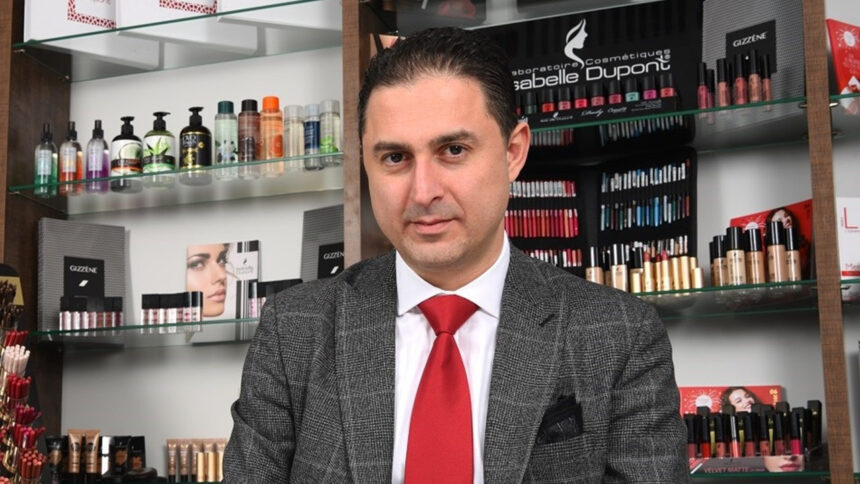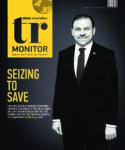By NEWS DESK
GIZ COSMETICS, the Turkish beauty products company, exported 45 million items in 2020 to 72 countries on five continents, according to its founder Ibrahim Zengin. Some 7 million pieces of color cosmetics and perfumes were sold to France, which is the top global market. The company exports 97% of its production but has recently discovered a growth opportunity in the domestic market, Zengin says.
The Turkey and France headquartered color cosmetics and personal care products company has plans to open a facility in France by 2023 and increase its brand awareness in Europe. But the domestic market has offered a good growth opportunity during COVID-19 when all brands are cautious to take new steps, the founder believes.
Giz Cosmetics posted a turnover of USD 9m in 2020, growing of 9% from previous year. It had expected to grow by 20% but an unexpected pandemic changed the outlook, Zengin says. It expects to post a relatively higher growth rate in 2021 with the help of an easing in pandemic restrictions, he adds.
The company has a 2,500 square meter facility in a free trade zone in Istanbul and is expecting to complete a new 12,000 square meter facility in May this year that is expected to double its employees to around 200.
DOMESTIC MARKET
Even though it has very limited exposure to the domestic market, Giz is one of the top five cosmetics manufacturers in Turkey and aims to rise in the rankings with the new capacity increase, Zengin says.
“We didn’t have a target to invest in the domestic market but a competitive advantage has arisen with lower costs, and we have seized it.”
Local shops and chains are in the sites of the company this year. It currently sells 75% of its products online, Zengin remarks.
The company has conducted new investments in 2020 and expects 2021 to be a year to learn the domestic market, with next year the time to pick the fruits, Zengin notes. In 2023, the company is planning to invest abroad, with a particular interest in France. “Some 15% of exports were to France and we have even sold chocolate eu de cologne to France,” Zengin says.
The company exports to 17 African countries and its lipsticks are popular due to its colors that are designed for local needs. Giz spends 1.5% of ts revenues on research and development and 1.5% on digitalization, according to Zengin.
PRIVATE LABEL
Established in 2006, the company manufactures color cosmetics, perfumes, personal and home care products under its own brands and private labels. It also produces most of its packaging needs and plans to further invest in that area, the founder remarks.
The company is focusing on the Turkish market and plans to increase its domestic sales with a new range of perfumes and personal care products.
Isabelle Dupont and Gizzene are its main brands, besides several others in make-up, perfume, personal care and home care.
It has more than 2,500 products and a production capacity of 35 million items per year.
It develops and produces private label products and actively has 22 private label brands in its portfolio. It also has ISO 9001, ISO 22716, GMP, CPNP and halal certificates and its products are accredited in accordance with European Union legislations and the FDA, Zengin says.
BETTER TO HAVE SHORTER BUT REVISABLE TARGETS
Ibrahim Zengin decided to invest in the cosmetics industry while he was at university. As an intern, he was working for Koc Yatirim, an investment bank, when he discovered the potential of cosmetics. In 2005, he began working for a company in the industry and at the end of the year, he quit to establish his own, along with two partners.
“We spent the first 1.5 years working for the first product and conducted our first exports to Azerbaijan in 2007,” Zengin says. Exports have continued since. The first 7-8 years was like an education period and the company began to really take off by 2015, he adds.
It’s always better to have shorter but revisable targets rather than long and strict ones, Zengin believes. Private Label products are only 15% of its production but Zengin thinks that it teaches them a lot.










